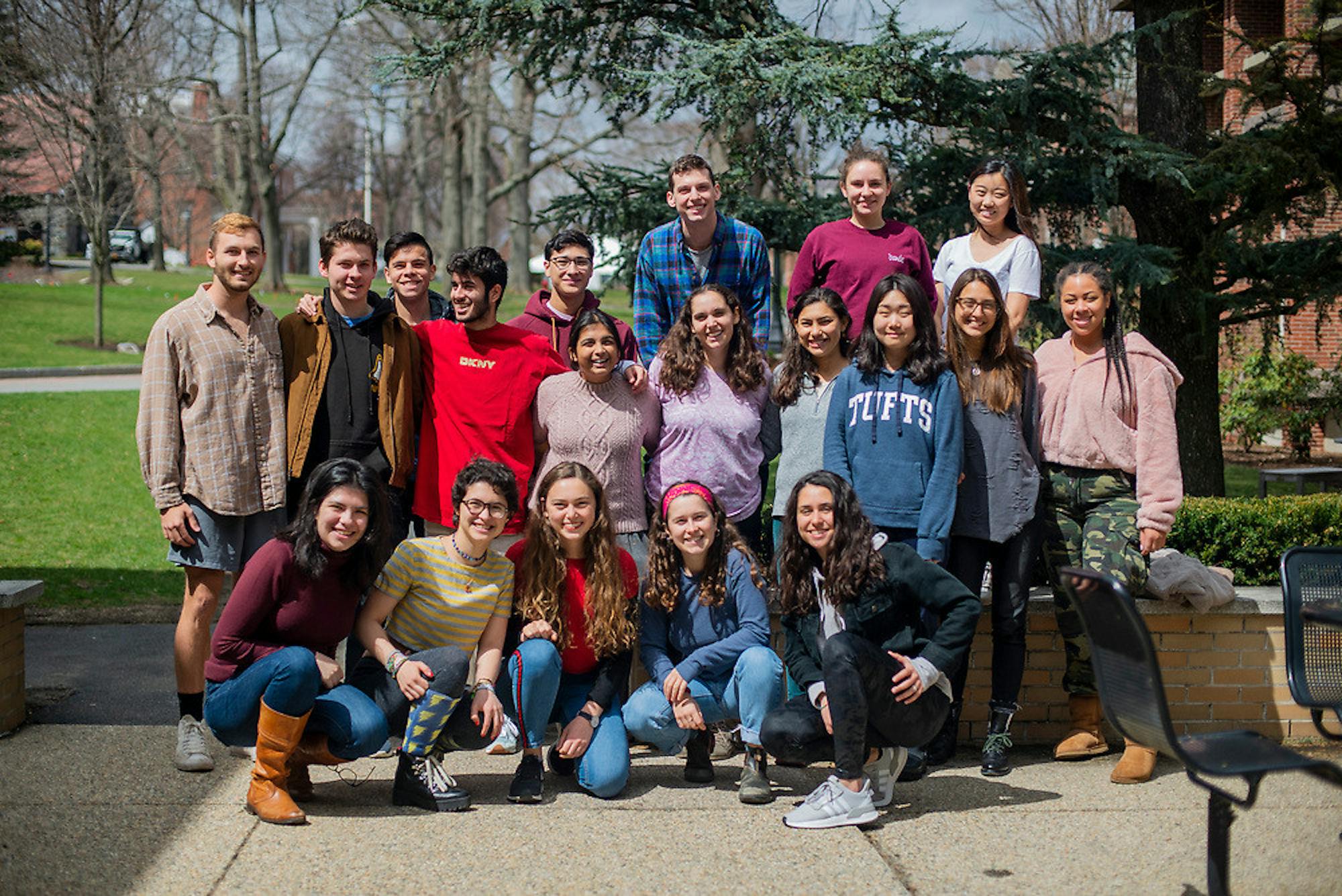The Tufts Office of Sustainability released the fiscal year 2017 and 2018 Campus Sustainability Progress Report in March of this year.
According to Tina Woolston, the Office of Sustainability program director, the report contains a sampling of the variety of different sustainability projects and advancements that are going on at Tufts but is by no means comprehensive.
“It’s hard to gather all the information since Tufts is so spread out. It has over 140 buildings just on this campus … We’re trying to include stuff from the Health Sciences campus, the Grafton campuses [and] the [School of the Museum of Fine Arts],” Woolston said.
Woolston explained that, to organize the variety of information in the report the Office of Sustainability wanted to move away from previous reports’ layouts as a way to represent Tufts moving forward with sustainability. The new report is loosely modeled after the Standard Tracking and Assessment Rating System framework that Tufts completed in 2015, which focuses on academics and research, according to Woolston.
Kayla Williams, the Eco-Rep coordinator, showed her support for the design.
“I like the way they put it together in a way that you could tell it's meant for everyone to read and look at and understand,” Williams, a senior, told the Daily.
Nako Kobayashi, a graduate student at the Friedman School of Nutrition Science and Policy and an Office of Sustainability 2018 summer intern, was instrumental in constructing the report according to Woolston and Shoshana Blank, the Office of Sustainability Education and Outreach program administrator.
“For me, it was really a matter of being as representative as possible,” Kobayashi said. “I didn't want it to be too focus[ed] on just what students did, or what faculty did; I really wanted to try and bring it all together and also highlight things … through the Eco-Ambassadors Program, staff members … student research, faculty research … and what has been done to improve infrastructure to be more sustainable.”
Blank, who runs the Eco-Ambassadors Program and the Green Office Certification Program, said she mainly provided data and statistics in areas such as energy and water usage, greenhouse gas emission sources and outreach.
“I’ve provided stories here and there for things that I knew, but a lot of things were really outside the scope of our office, and Nako found those stories in other parts of the university,” Blank said.
Kobayashi told the Daily that much of her work was based on information compiled by the office’s previous full-time communications specialist. According to Kobayashi, the communications specialist role no longer exists due to budget cuts, so the construction of the report fell to her.
The report comes a year and a half after the release of the last sustainability update in the fall of 2017. According to the Office of Sustainability website, the previous reports were released each spring.
According to Blank, the loss of the communications specialist position is a major reason for this delay and the subsequent need to combine the 2017 and 2018 fiscal years in the latest report.
Woolston anticipates that the next report will be difficult to produce for this same reason.
“I think it's gonna be a lot harder to do the next one. We're trying to track [sustainability updates], but without a full-time staff person it’s just much harder,” Woolston said.
When the future reports do come, Woolston indicated that the office is interested in presenting them in a different way, perhaps making them more interactive online or providing shorter versions.
Williams also thinks a shorter version would be good to include in the future.
“I wish there was maybe a shorter pamphlet or something, or like a quick read version,” she said. “[There are] people who are curious but are not invested enough to do all the work to find it and then go through [all] the pages of it.”
Williams also commented on the impact the reports could have on the Tufts community.
“I hope that in the future ... all of these plans and ongoing projects actually end up making Tufts a place that is carbon free, or that does prioritize like environmental health. Not only just for the students that live here but for the community surrounding,” she said.
Tufts releases 2017, 2018 Sustainability Progress Report

The Tufts Eco-Reps pose for a portrait in front of Paige Hall on April 10.





